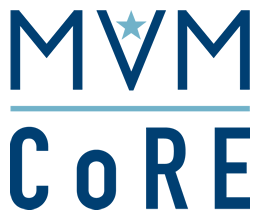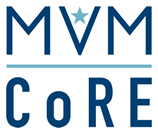Attention A T users. To access the menus on this page please perform the following steps.
1. Please switch auto forms mode to off.
2. Hit enter to expand a main menu option (Health, Benefits, etc).
3. To enter and activate the submenu links, hit the down arrow.
You will now be able to tab or arrow up or down through the submenu options to access/activate the submenu links.
Locator
Contact
Search
MVM-CoRE

Military and Veteran Microbiome:
Consortium for Research and Education
Updated: 5 December 2016
Selected Bibliography and Podcasts
- Hoisington, A. (October 2016). Intersection between Microbiome of the Built Environment and Mental Health and Establishment of MVM-CoRE. Poster Abstract for National Academies of Sciences, Engineering, and Medicine - Microbiomes of the Built Environment: From Research to Application meeting, Beckman Center at the University of California, Irvine
- The establishment of the Military and Veteran Microbiome Consortium for Research & Education (MVM-CoRE) in the past one and a half years has led to an increase awareness of the potential links between the microbiome of the built environment and mental health. MVM-CoRE is a multidisciplinary research team that aims to conduct microbiome research for the benefit of military, Veterans, and their families. Founding members of the MVM-CoRE include Dr. Lisa A. Brenner (Director, Veteran Affairs Rocky Mountain Mental Illness Research Education and Clinical Center & Associate Professor, University of Colorado Denver), Dr. Christopher A. Lowry (Associate Professor, Department of Integrative Physiology and Center for Neuroscience, University of Colorado Boulder), Dr. Teodor T. Postolache (Professor of Psychiatry, University of Maryland School of Medicine), and Dr. Andrew J. Hoisington (Assistant Professor of Environment Engineering, United States Air Force Academy). Since the inception of the program, this group has been awarded projects to conduct longitudinal studies of the microbiomes of the built environment cadet occupants, biofingerprinting, the use of probiotics to increase stress resilience in Veterans with co-occurring mild traumatic brain injury (TBI) and posttraumatic stress disorder (PTSD), and the Veteran microbiome.
- The largest study to date is a longitudinal study of the microbiomes of the built environment and cadet occupants at the United States Air Force Academy (USAFA). In addition to the MVM-CoRE team, this study includes Dr. Jack Gilbert (Professor in Ecology & Evolution and Surgery, University of Chicago), Dr. Kerry Kinney (Professor in Environment Engineering, University of Texas Austin), and Dr. Katherine Bates (Assistant Professor in Biology, United States Air Force Academy. In this study, we have over 40 cadets in their third year at school that just returned from summer break. We sampled the first five weeks of school, twice per week. Microbiome sampling included the outdoor environment, built environment, and skin and and gut of occupants. We are also measuring salivary cortisol as a biomarker of stress and we are using multiple surveys, all attempting to better understand stress levels in the cadets. We will sample again for two weeks at the end of the semester (a period of high stress) and after the cadets return from winter break. This study also funded the first ever Department of Defense (DoD) microbiome symposium, to be held at USAFA in April 2017. At that symposium we will gather microbiome experts from academia and the DoD to discuss the needs and future directions for microbiome research to benefit our military, Veterans, and their families.
- Another funded study involves small scale sampling of faculty members and families aimed at characterizing the biofingerprint that individuals leave behind and the relationship of the biofingerprint microbial communities with the microbiomes of family members. This study involved 35 participants and included both human and built environment microbiome sampling in the office and at home. Biofingerprinting could be beneficial for military commanders in determining who might have been in an occupied space and how long it has been since they were last there.
- A third funded study that is currently in progress is the use of an immunoregulatory probiotic to increase stress resilience in Veterans suffering from co-occurring mild TBI and PTSD. Dr. Lowry’s group has demonstrated long-lasting increases in stress resilience following immunization with immunoregulatory bacteria in a mouse model of PTSD and this pilot study of forty Veterans will determine if we see the same phenomenon in humans.
- Finally, we have begun sampling Veteran oral, skin, and gut microbiomes. This study collects mental health data from individuals just prior to their sampling. We expect to sample at least 500 Veterans in this effort.
- Overall, we are excited about the possibility for collaborative research across disciplines. We believe bringing together a diverse team of researchers will be key to unlocking future discoveries that will greatly increase knowledge in the field and benefit individuals. Our team has written several articles on the connections between the microbiome and mental health and the research projects described above will contribute to our knowledge of the relationship between the microbiome of the built environment and mental health.
- A Nationwide Cohort Study of the Association Between Hospitalization With Infection and Risk of Death by Suicide
- Dr. Teodor T. Postolache
- Lund-Sørensen H, Benros ME, Madsen T, et al. A Nationwide Cohort Study of the Association Between Hospitalization With Infection and Risk of Death by Suicide. JAMA Psychiatry. Published online August 10, 2016. doi:10.1001/jamapsychiatry.2016.1594.
- Read the full article for free on the JAMA Psychiatry website
- Microbes Among Us
- Maj. Andrew Hoisington, Ph.D., P.E., M.SAME, USAF
- As researchers continue to study the bacterial and fungal microbiome in the indoor environment, the Department of Defense can learn from research of facilities comparable to its property inventory while accounting for mission and locational differences that could introduce dissimilar microbiomes from those researched to date.
- The microbiome of the built environment and mental health
- Hoisington AJ, Brenner LA, Kinney KA, Postolache TT, Lowry CA. Microbiome. 2015 Dec 17;3:60. DOI: 10.1186/s40168-015-0127-0. PubMed PMID: 26674771
- This is article is available for free download through open access.
- Relationship Between Toxoplasma gondii and Mood Disturbance in Women Veterans
- Duffy AR, Beckie TM, Brenner LA, Beckstead JW, Seyfang A, Postolache TT, Groer MW. Mil Med. 2015 Jun;180(6):621-5. doi: 10.7205/MILMED-D-14-00488. PubMed MID: 26032378.
- Read the abstract on PubMed
- Hygiene and other early childhood influences on the subsequent function of the immune system
- Rook GA, Lowry CA, Raison CL. Brain Res. 2015 Aug 18;1617:47-62. doi: 10.1016/j.brainres.2014.04.004. Epub 2014 Apr 13. Review. PubMed PMID: 24732404.
- This article is avavilable for free download on open access.
- Kynurenine and Tryptophan Levels in Patients With Schizophrenia With Elevated Antigliadin Immunoglobulin G Antibodies
- Okusaga O, Fuchs D, Reeves G, Giegling I, Hartmann AM, Konte B, Friedl M, Groer M, Cook TB, Stearns-Yoder KA, Pandey JP, Kelly DL, Hoisington AJ, Lowry CA, Eaton WW, Brenner LA, Rujescu D, Postolache TT. Kynurenine and Tryptophan Levels in Patients With Schizophrenia With Elevated Antigliadin Immunoglobulin G Antibodies. Psychosom Med. 2016 Jun 29. [Epub ahead of print] PubMed PMID: 27359171.
- Read the abstract on PubMed
MVM Podcasts
- Rocky Mountain Short Takes on Suicide Prevention: The Microbiome, Old Friends and Getting Outside
- 11 August 2016 - This week Adam interviews Lieutenant Colonel Andrew Hoisington, Ph.D., P.E., M.SAME, USAF, an Assistant Professor, and Environmental Engineering Division Chief, Department of Civil & Environmental Engineering, U.S. Air Force Academy. He is also one of the principle investigators with the Military and Veteran Microbiome: Consortium for Research and Education (MVM-CoRE). Dr. Hoisington is the author on numerous publications in the fields of the microbiota, immunoregulation, and mental health, including lead author on a publication in the journal Microbiome, and author on a recent publication in Current Environmental Health Reports.
- Listen to the podcast:
- The microbiome of the built environment and mental health
- The Microbiome and Suicide Prevention
- 16 May 2016 - In this podcast Adam Hoffberg (and @adamhoffberg) interviews Dr. Christopher A Lowry (and @CALowryPhD) about his work studying the relationship between stress resilience and the microbiome. Dr. Lowry is with the University of Colorado Boulder, Department of Integrative Physiology, and the Center for Neuroscience, as well as co-Director for the Military and Veteran Microbiome: Consortium for Research and Education (and @MVM_CoRE). Dr. Lowry is the senior author on a publication in the Proceedings of the National Academy of Science . The article is titled “Immunization with a heat-killed preparation of the environmental bacterium Mycobacterium vaccae promotes stress resilience in mice.” Listen how the this article with it's complex title is turned into something understandable. The podcast is approximately 22 minutes long.
- Listen to the podcast:
- Read the article “Immunization with a heat-killed preparation of the environmental bacterium Mycobacterium vaccae promotes stress resilience in mice.”

























